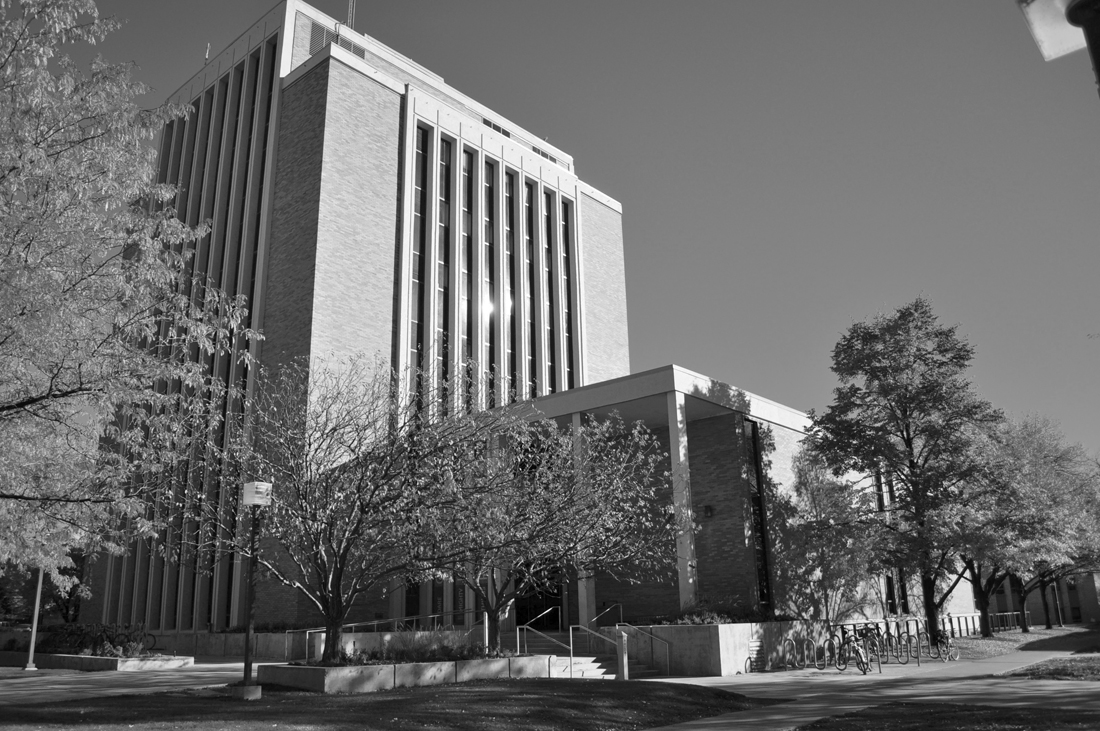200 student ideas reviewed for new USU business program
The Huntsman School of Business recently launched a new program designed to help students develop their sprouting business ideas.
The New Venture Development Group (NVDG) is led by entrepreneurship major Luke Lancaster under the direction of David Clark, the director of entrepreneurs in the school of business.
“We have two objectives,” Lancaster said. “First, to create an educational opportunity for students. That’s our main objective. Second, to create economic development.”
Lancaster said the NVDG can help start businesses by working with entrepreneurs in the community and providing them resources. The group can provide funding, business consultation and potential licensing opportunities in conjunction with the USU Technology Commercialization Office (TSO).
“Utah is the number one place for entrepreneurship,” Lancaster said. “Because of that, we need to provide entrepreneurs with resources they need to be successful.”
When the project was first launched, Clark, Lancaster, and associate director of entrepreneurial programs Mike Young interviewed about 40 students from across campus to serve as the group’s leaders. Twenty students were selected for these roles based on their interest, past entrepreneurial experience and academic accomplishment. Students were selected from a variety of majors, including electrical engineering and biology.
Clark said originally they had intended to select 15 students, but the quality and the enthusiasm of the students was so high that they expanded the group to 20. As of now, 16 of those 20 are receiving scholarships for their work, and Clark said he hopes the number of scholarships will grow.
Clair Adams, a biology and public health dual-major, was one of the students selected. She said she was initially interested in the group because she had ideas for the health industry and wanted to be able to talk to someone about them.
“The NVDG is a great opportunity to talk to your peers about business ideas because everyone has a slightly different perspective on the world and gathering those perspectives strengthens an idea,” Adams said.
Adams said that the group is looking for more people to submit ideas to them for development. So far, they have about 200 ideas, which they intend to review and then select the best ones. While most of the ideas have come from members of the group, she said that many have come from outside the group as well. The NVDG wants students to submit their ideas for review, Adams said.
Once an idea is submitted, Lancaster said, all 20 group members and the faculty involved sign confidentiality agreements stating that they can’t claim ownership of an idea or talk about it outside of the group. That way the idea still belongs to the student who submitted it, he said. “The idea is still theirs,” he said. “Including the rights to it.”
Clark said that the goal of the group is to create.
He said: “The goal is to think of new possibilities and to identify opportunities for new, impactful, sustainable businesses. That’s one of the reasons we wanted a diverse group. We wanted to bring perspectives from different backgrounds so that our thinking expands. We’re hoping to identify exciting new business opportunities with the possibility of having those business grow and become significant contributors to the economy of our state and beyond.”
Clark said the NVDG is first step in a larger development program. He said they plan to create a four-step process which will help students take their business ideas all the way from the idea stage to setting up offices and running businesses.
Clark said the NVDG is for coming up with ideas, discussing them, and getting them ready for presentation. The next step in the process is the New Venture Consulting Group (NVCG) which was started last year and is currently led by president Travis Godderidge. Clark said the NVCG is for reviewing plans and getting them ready to present to potential investors. The next step, Clark said, is creating what will be called the New Venture Investment Group (NVIG) which will help students make decisions about funding. The final step, Clark said, is a business incubator program which will help students rent discounted office spaces and get their businesses going.
Clark said he wants the four-step program to be a way for students to get real, hands-on experience in the business world and gain a great education along the way.
“You can create an educational experience in the classroom, but we want to take that a giant step further,” he said.
“Our goal is not to say that everyone should start their own business,” Clark said. “Our goal is that students will have an understanding of what it takes to run a business, and be able to add to any business situation.”
Business ideas can be submitted to Clair Adams at claire.adams@aggiemail.usu.edu
– robmjepson@gmail.com

